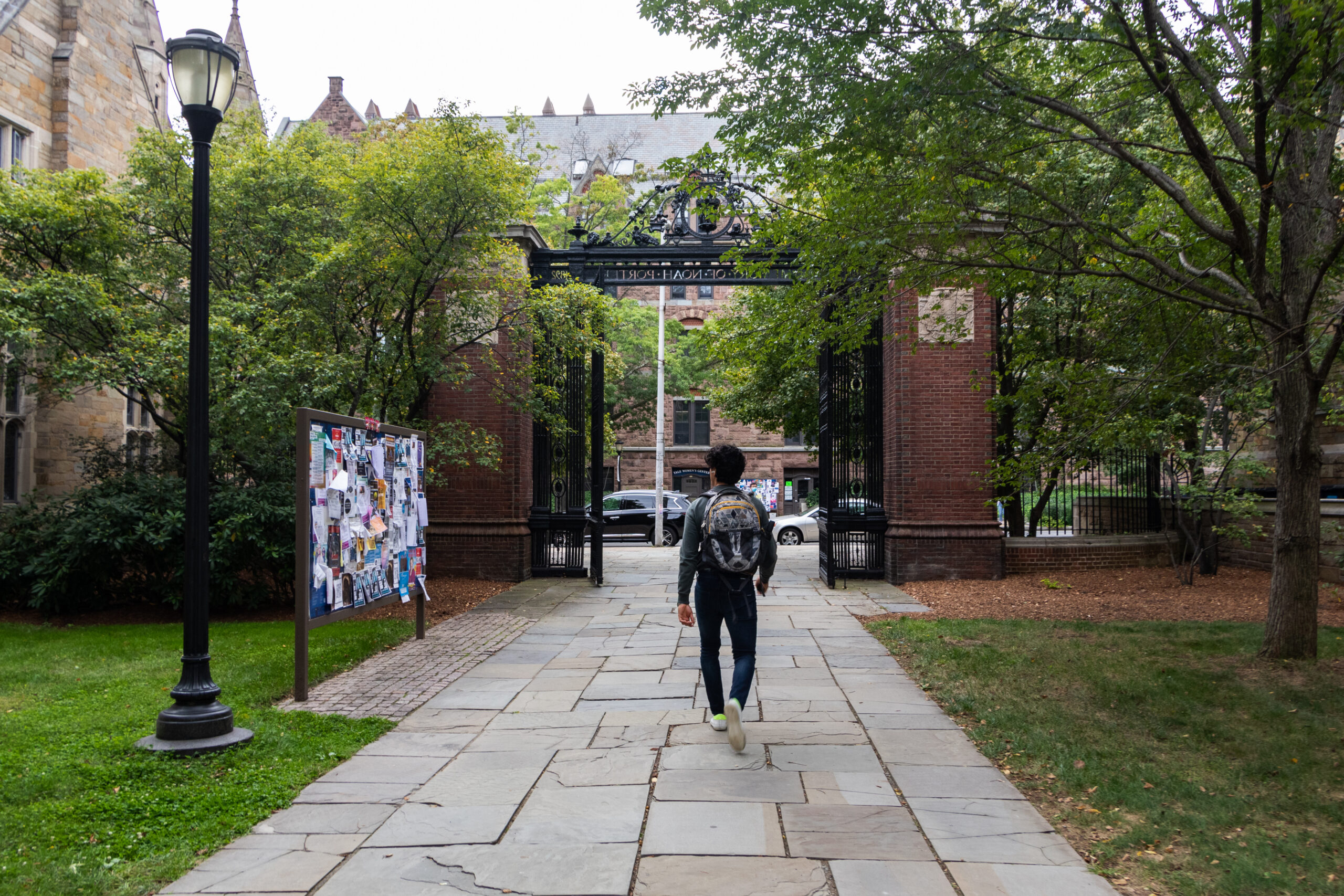“Shocking and worrying”: Visa revocations spark fear among international students
International students expressed mixed feelings about the University’s response to the federal government’s recent targeting of international students.

Zoe Berg
The federal government’s targeting of international students has sent shock waves across the international community at Yale.
Last Thursday, Yale’s Office of International Students and Scholars told the News that the federal government had terminated the visas of four international students at Yale. On the same day, the Department of Homeland Security announced a new social media screening policy that would deny international students “immigration benefit requests” if it finds social media content “linked to antisemitic activity.”
The News talked to three international students, all of whom requested anonymity due to fears of retaliation, about these developments and the University’s subdued response.
“In general, as a student of this university, I would be happy to see [Yale President Maurie] McInnis take a stance against the illegal actions taken by the administration,” one student said. “But if we don’t anger Trump and not force him to take more actions on international students, that may very well be a good strategy.”
Two students told the News that the most surprising development over the past several weeks was the DHS’s new social media screening policy.
One student said she followed both sides of the protests on social media following the outbreak of the war in Gaza to stay informed and broaden her perspective. Now, she is considering “staying more underground,” even deleting social media.
These threats are also casting doubt on her long-term plan to stay in the U.S. after graduation.
“I don’t feel safe in this country anymore, which is one of the reasons why I initially came here, because I felt like I could be learning things and exploring different stuff without the persecution of my intellectual curiosity,” she said. “However, that’s not the case anymore, and I am considering leaving America after graduating.”
She still applauded the support from Yale’s Office of International Students and Scholars, especially the legal guidance it promised to international students dealing with immigration issues, regardless of context.
“OISS’s legal assistance is not tied to any specific action or policy but is available regarding visa, travel, and other immigration issues,” OISS director Ozan Say told the News last week.
Say also told the News this Monday that the OISS checks the Student and Exchange Visitor Information System, which the Department of Homeland Security uses to maintain information about international students, on an hourly basis.
Another student said that the federal government’s monitoring of social media is “particularly worrying” in the United States, which has championed the values of democracy and free speech throughout history.
“Look at the entire fight against Communist and totalitarian regimes in the world,” she said. “The U.S. was leading that fight in both Democratic and Republican administrations. It’s shocking and worrying to see the country so quickly change its position.”
According to her, the government’s reasoning that it is fighting antisemitism on college campuses is also inadequate because “we’re seeing more and more cases where students are not saying things that are antisemitic.”
“The [International Criminal Court] and [the International Court of Justice] are saying similar things,” she said, “and so in a lot of cases, the question is, where is the process? Is what they’re saying really that horrible that they have to be deported?”
One student said that while she respects everyone’s privacy, she wishes the University would be more transparent about why some Yalies have lost their visas recently so that she can say “careful.”
Students also said that there is more fear among international students on campus to speak out on political issues, and one student said she was “quite unproductive for a few days” when there were intense talks about visa revocations across the nation.
“I was unfocused, and I couldn’t really concentrate aside from digesting what was happening and being scared,” she said.
She added that she now keeps her immigration documents with her at all times, even when she is going on a “leisurely” walk.
Amid this shared fear, there’s no consensus among the international community about how the University should respond to the federal government and President Donald Trump.
One student said that after Trump’s evident vengeance against the universities he has vilified, it would be “counterproductive” for Yale to stand up against the federal government.
“Other universities are doing the fight, and they’re getting in a lot of trouble for it,” she said. “So perhaps putting Yale on the war map is not necessarily a good idea. I’m not sure how much it would change things. In principle, I think it would be nice, but pragmatically, I see the decision not to.”
A second student said what’s important right now is “to not make it a bigger issue than it is,” especially considering Trump’s impressionable character. She said she hopes the University is talking with Republicans in Congress to ensure that Trump doesn’t take any further steps against universities.
Another student, however, said she hopes Yale will stand up to Trump “the same way as Harvard and not follow Columbia into submitting to the demands of the federal government.”
According to her, the University’s policy to broadly refrain from issuing public statements feels inappropriate amid the federal government’s direct assault against members of the Yale community.
“I would feel much more supported in this institution if the administration had come out with a statement of institutional support for international students,” she said. “If the institution doesn’t stand up right now, more demands will come, and bullying will follow along.”
Yale is the second wealthiest private university in the U.S.







